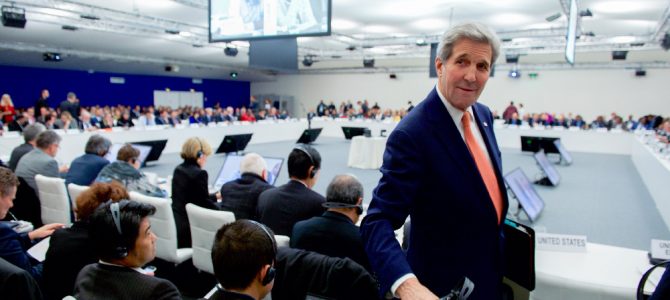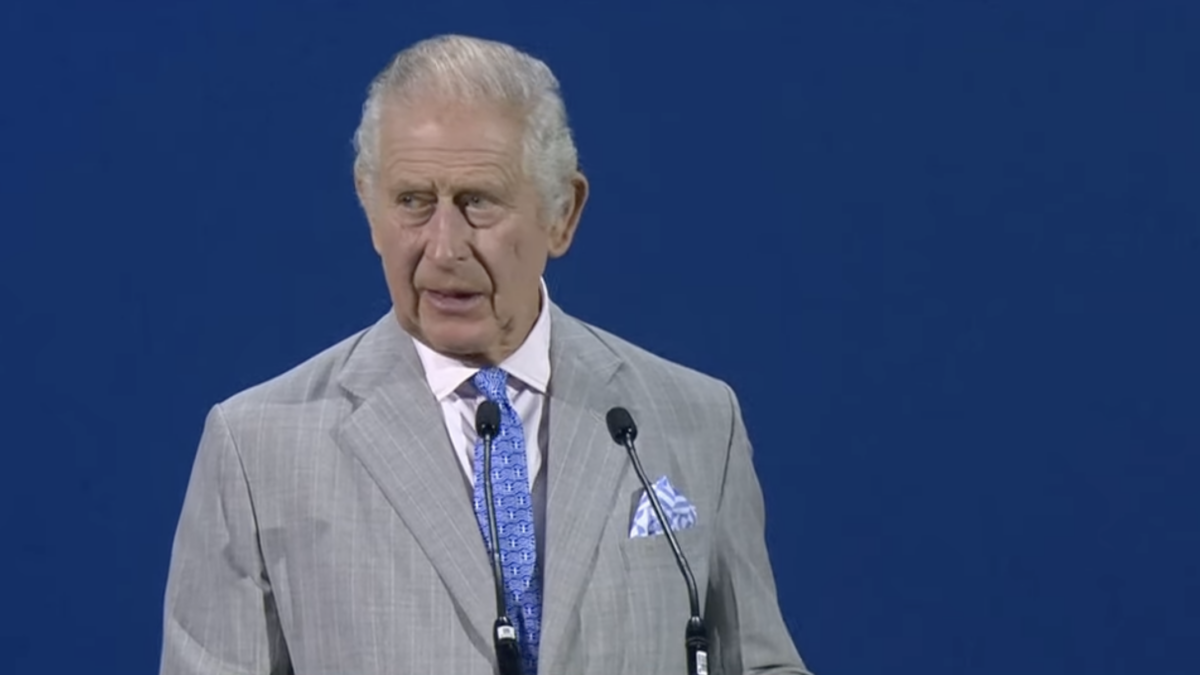
Top officials in the Trump administration apparently are debating whether to withdraw from the Paris Climate Treaty, an agreement negotiated in the waning years of the Obama administration that would commit the United States to reducing its greenhouse gas emissions by 26 to 28 percent relative to 2005 levels by the year 2025.
The Heartland Institute has been studying climate change for nearly two decades. Our advice to the Trump administration is simple: Run, don’t walk, away from the Paris Climate Treaty! Here are our reasons for this recommendation. Sources for our statements are readily found here and here.
There Is No Scientific Basis for the Paris Climate Treaty
The Paris Climate Treaty is supposedly an attempt to keep global temperatures from increasing 2 degrees C, but this objective is based on political science, not climate science.
The goal is an arbitrary political target based on climate activists’ demands for a number, no matter how dubious or fake, to use in their fundraising letters and to appear on their signs at protests. There is no scientific evidence suggesting a warming of 1.9 degrees C is safe while 2.1 degrees C is not safe.
Climate models that forecast temperature increases of more than 1 or 2 degrees during the next century are not scientific. They flunk the objective requirements of scientific forecasting. They are educated guesses by activists whose credibility and livelihood depend on showing ever-increasing certainty of impending doom, even as their data point in the opposite direction.
Climate models have greatly overestimated warming over the past two decades. The models have not matched observed temperatures from satellites, the only truly global and accurate way we have of measuring Earth’s temperature. Why should we imagine their forecasts of climate conditions 100 years from now and beyond are accurate?
Carbon dioxide is not a pollutant. More CO2 leads to faster, more robust plant growth, including staple food crops. Moderate warming, should it occur, would have a positive effect on humanity, since lower temperatures kill far more people than do warmer temperatures, and warming historically has been associated with economic growth, global peace, and prosperity.
The Paris Climate Agreement Puts America Last
The Paris Climate Agreement would require the United States to make massive reductions in emissions and pay billions of dollars in “climate reparations” to Third World dictators, while requiring no emission cuts from developing countries including India and China.
China’s only commitment in the Paris agreement is agreeing to reach peak carbon dioxide emissions “around 2030” and reducing emissions per unit of gross domestic product by 60 to 65 percent by that time from their 2005 level. This agreement is a gift to Chinese manufacturers and a slap in the face of American industry.
There is simply no justification for the United States to pay hundreds of billions of dollars to developing countries at a time when the U.S. government is running massive deficits, when economic growth is slower for a longer period of time than at any time since the Great Depression, and when American workers are competing against lower-paid workers in China and India.
Other countries are already failing to keep their pledges to help finance the United Nations Climate Fund, which means the United States will be asked to contribute even more money to make up the difference. Other countries are simply relabeling foreign aid to count toward their goals. And China will use the failure to fund the programs as “political cover” to continue to ignore its own climate targets.
The Paris Climate Treaty Is a Job Killer
Low coal, oil, and natural gas prices have fueled nearly all the economic growth that occurred during the Obama years. If Obama-era restrictions on developing natural resources are lifted, billions of dollars more in manufacturing investment in the United States will occur and millions of new jobs will be created.
Conversely, staying in the Paris Climate Treaty would mean increasing electricity prices and compromising the reliability of our electrical grid, which would drive manufacturing out of Midwestern states like Indiana, Ohio, Pennsylvania, and Wisconsin to developing countries where coal and natural gas are still allowed.
The Paris Climate Treaty requires that the United States ratchet down its emissions every five years, despite economic growth, population growth, and opportunities to become a net energy exporter to the world. Every year, thousands more miners, drillers, engineers, pipeline workers, auto plant workers, and truck drivers would lose their jobs. The Paris Climate Treaty is a heat-seeking missile aimed solely at American jobs. Why would we do that?
What We Should Do Instead
The fastest, most efficient way to remove the United States from the Paris Climate Treaty is to withdraw from the United Nations Framework Convention on Climate Change (UNFCCC), negotiated in 1992. Doing so would keep President Trump’s promise to defund the United Nations’ global warming projects, and it could be done in one year rather than the four years required to withdraw from the Paris treaty. Withdrawal from the UNFCCC would automatically mean leaving the Paris treaty.
If President Trump does not withdraw the United States from the Paris Climate Treaty and, even better, from the UNFCCC, then the leaders of other countries will use the treaties as a huge stick with which to beat U.S. consumers and producers. American independence and prosperity—and greatness—will be impossible. The American people, and the middle class in particular, will once again have been betrayed by the political class in Washington DC.
The Paris Climate Treaty empowers enemies of American greatness at home, too. A future administration could use the treaty, just as the Obama administration began to do, to justify policies that transfer billions of dollars to Third World dictators, cripple the American economy, and hurt American workers. President Trump should fully withdraw the United States from the Paris Climate Treaty and, better yet, from the UN Framework Convention on Climate Change.









